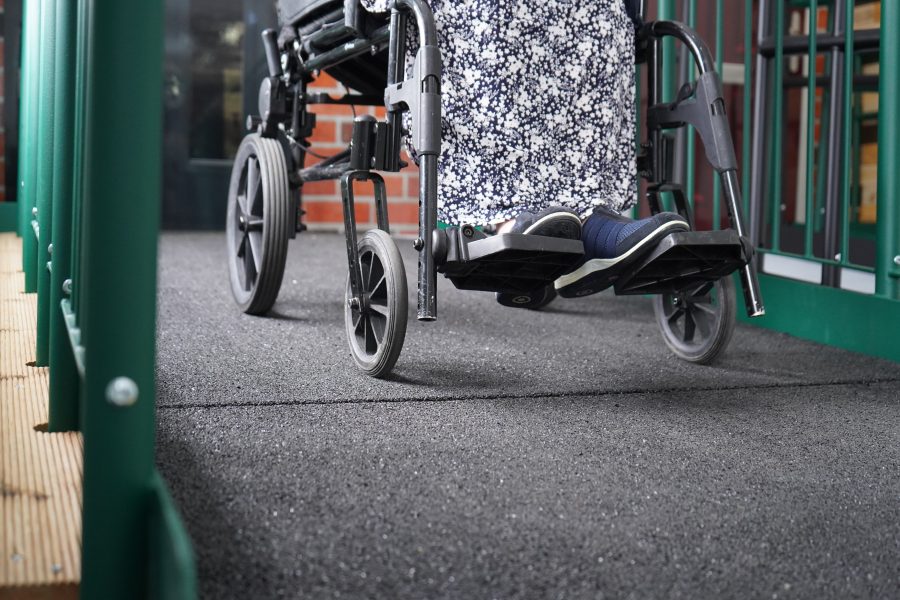In today’s world, ensuring accessibility for all is not just a moral imperative but a legal requirement. The Disability Discrimination Act (DDA), now encapsulated within the Equality Act, stands as a crucial piece of legislation in the United Kingdom, aiming to eradicate discrimination against individuals with disabilities. This act has significant implications for various sectors, including construction, infrastructure, and public services. Let’s delve into what DDA compliance entails and why it’s vital for businesses and organisations.
What is DDA Compliance?
DDA compliance refers to adherence to the guidelines set forth in the Disability Discrimination Act of 1995, which later became a part of the Equality Act of 2010. This legislation mandates that service providers, employers, and public bodies must not discriminate against individuals with disabilities. It requires organisations to make reasonable adjustments to ensure equal access to services, employment, and facilities for people with disabilities.

Understanding the Requirements
DDA compliance covers a broad spectrum of accommodations, ranging from physical infrastructure to digital accessibility. For instance, in the context of infrastructure, it necessitates the provision of wheelchair ramps, accessible lifts, and appropriate signage to facilitate easy navigation for individuals with mobility impairments. Additionally, it extends to digital platforms, requiring websites and online services to be accessible to users with disabilities, including those with visual or hearing impairments.
The Importance of DDA Compliance
Ensuring DDA compliance is not just a legal obligation but also a moral responsibility for businesses and organisations. By embracing accessibility measures, they not only fulfill their legal duties but also foster inclusivity and diversity within their communities. Moreover, it opens up opportunities for individuals with disabilities to participate more actively in society, thereby promoting social cohesion and equality.
Modular Wheelchair Ramps: A Key Component of Accessibility
Easiaccess specialises in the design and installation of modular wheelchair ramps, offering a versatile solution for overcoming architectural barriers. These ramps are designed to provide safe and easy access for wheelchair users, mobility scooter users, and individuals with limited mobility. Whether it’s for public buildings, private residences, or commercial premises, Easiaccess ramps are customisable to suit various requirements and configurations.

DDA Compliance Through Design and Innovation
Easiaccess understands the importance of DDA compliance in creating inclusive environments. Their ramps are meticulously designed and engineered to meet the stringent requirements set forth by the Disability Discrimination Act and its successor, the Equality Act. Here’s how Easiaccess ensures that their ramps are DDA compliant:
- Accessibility Standards: Easiaccess ramps are designed in accordance with accessibility standards, ensuring that they provide a safe and accessible route for individuals with disabilities. From slope gradients to handrail specifications, every aspect of the ramp is carefully considered to meet DDA requirements.
- Customisation: Easiaccess offers customisable ramp solutions to accommodate various architectural constraints and user needs. Whether it’s a straight ramp, a curved ramp, or a ramp with platform landings, their modular system allows for flexible configurations to suit specific environments.
- Quality and Durability: DDA compliance goes beyond meeting regulatory standards – it also entails providing durable and reliable accessibility solutions. Easiaccess ramps are constructed from high-quality materials, ensuring longevity and stability. With features such as anti-slip surfaces and weather-resistant finishes, these ramps are built to withstand the rigors of daily use.
- Installation Expertise: Achieving DDA compliance requires more than just supplying ramps – it also involves proper installation and integration into existing infrastructure. Easiaccess boasts a team of experienced professionals who handle the entire installation process, ensuring that ramps are installed safely and securely.
Conclusion
In conclusion, DDA compliance is not just a legal obligation but a cornerstone of a more inclusive and equitable society. By prioritising accessibility and making reasonable adjustments, businesses and organisations can create environments that welcome and accommodate individuals with disabilities. Embracing DDA compliance is not only the right thing to do – it’s also a step towards building a more accessible and diverse world for all.

Contact
Request a free survey and quote or discuss what product and service is best for you.
Make Enquiry

